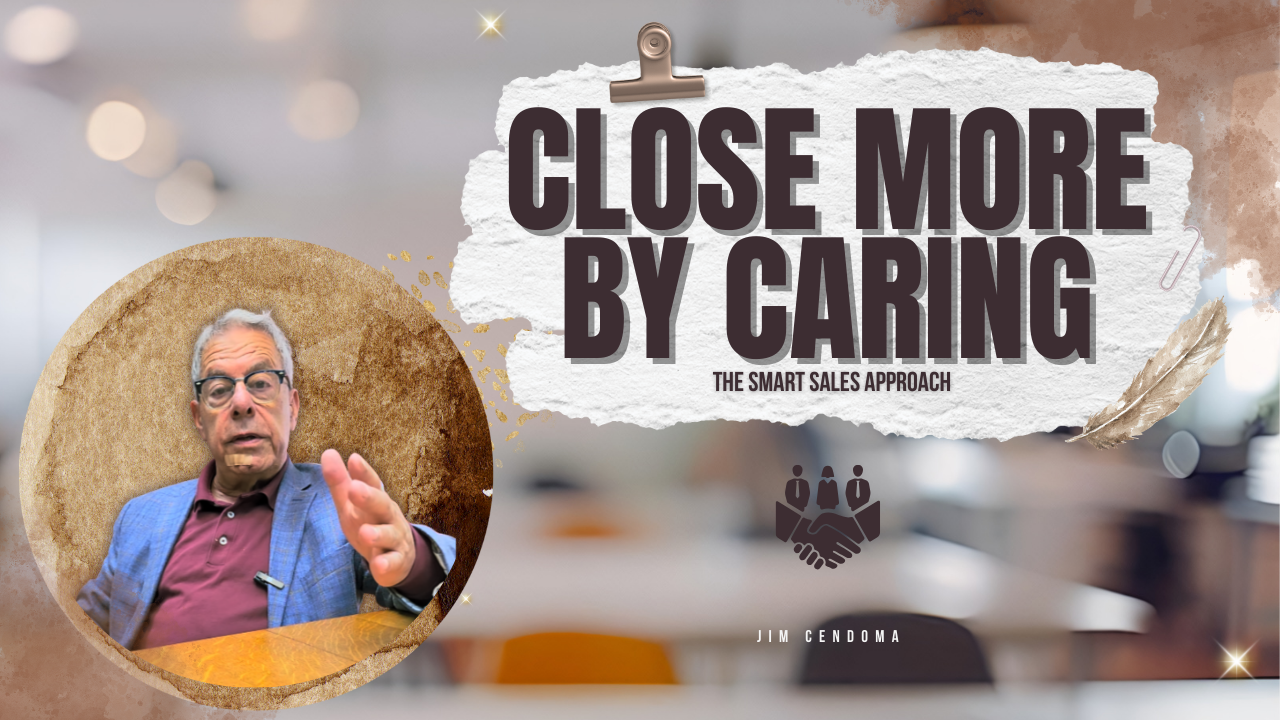
If you’ve worked in sales, chances are you’ve heard the phrase: ABC—Always Be Closing. It’s a mantra passed down through sales training sessions, motivational talks, and even Hollywood movies for decades.
The idea was simple: never miss an opportunity to ask for the order. Whether you’re pitching, following up, or shaking hands at the end of a meeting, you should always be moving the conversation toward the close.
But here’s the truth: while this approach may have worked in the past, it’s no longer enough. In fact, taken too literally, it can actually damage relationships and cost you deals. Today’s customers expect more. They don’t just want a closer; they want a partner.
Why “Always Be Closing” Can Backfire
At its core, Always Be Closing is about urgency. But urgency without empathy can quickly turn into pressure—and customers notice.
Think about it from the buyer’s perspective. If a salesperson is constantly pushing to close before truly understanding your needs, do you feel respected? Probably not. Instead of building trust, the salesperson creates resistance.
The phrase close early and often can be even riskier. When a salesperson jumps to the close too soon, it sends the wrong signal. Instead of confidence, it can come across as desperation or self-interest. Instead of building a relationship, you’re eroding one.
The reality is that closing for the sake of closing doesn’t align with how modern buyers make decisions. Customers aren’t just making transactions—they’re seeking long-term partnerships, especially in industrial sales strategies and B2B customer-first selling.
The Modern Buyer Has Changed
One of the biggest shifts in modern sales techniques over the past decade is the rise of the informed buyer. With access to the internet, social media, peer reviews, and comparison tools, customers often know as much about a product—or even more—than the salesperson they’re speaking with.
By the time they reach out, many customers have already researched features, compared competitors, and outlined their requirements. What they’re looking for is not just information, but insight.
This is especially true in industrial sales, where solutions are complex and the stakes are high. Buyers don’t want a pushy salesperson; they want a trusted advisor who listens, understands their challenges, and helps design solutions that actually solve problems.
That’s why the old ABC no longer works. Customers don’t just want someone who’s always closing. They want someone who’s always caring.
Redefining ABC: Always Be Caring
What if we kept the ABC acronym but gave it a new meaning? Instead of Always Be Closing, let’s shift to Always Be Caring.
This reframe may seem small, but the impact is huge. Caring doesn’t mean avoiding the close—it means leading with the customer’s best interest in mind. It means ensuring they feel heard, understood, and supported.
When you put caring first, the close becomes a natural byproduct of trust and alignment, not a forced or awkward step.
The Benefits of Always Be Caring
The shift from closing to caring produces benefits that extend far beyond a single transaction. Here’s how:
- Trust grows faster. Customers are far more likely to buy from someone they believe has their best interest at heart. Caring builds that foundation.
- Solutions fit better. By investing time to understand customer needs, your recommendations are more aligned and effective.
- Loyalty strengthens. Customers who feel cared for aren’t just one-time buyers—they become long-term partners who often refer others.
- Conversations flow naturally. Instead of rigid, scripted exchanges, your discussions feel like genuine problem-solving sessions.
This is how sales trust building creates long-lasting success.
Practical Ways to Practice Caring in Sales
So how do you make the leap from closing to caring? Here are five practical strategies you can start using today:
- Ask, don’t assume. Use open-ended questions to uncover your customer’s real goals, pain points, and priorities.
- Listen actively. Don’t just wait for your turn to talk—repeat back what you’ve heard and confirm you understand correctly.
- Personalize your approach. Every customer is unique. Tailor your pitch, recommendations, and follow-ups to their context.
- Think long-term. Instead of chasing today’s deal, build a foundation for future projects, referrals, and partnerships.
- Follow up with purpose. Caring doesn’t stop at the close. Check in, offer support, and ensure the solution continues to work.
These actions don’t just make customers feel good—they are the foundation of customer-first selling and industrial sales strategies.
Closing as a Byproduct of Caring
Here’s the paradox: when you stop obsessing over closing, you often end up closing more.
Why? Because customers feel comfortable saying yes when they know you genuinely care about their success. They’re no longer guarding against pressure—they’re leaning into partnership.
Caring doesn’t mean being soft or passive. It means leading with empathy, building trust, and aligning solutions with real needs. Closing still matters, but it comes naturally as the outcome of doing the right things first.
Real-World Example
Imagine two sales approaches to the same prospect:
- Salesperson A follows the old ABC playbook. They jump straight into a pitch, ask for the order quickly, and push for urgency. The customer feels pressured and stalls.
- Salesperson B practices the new ABC—Always Be Caring. They ask thoughtful questions, listen deeply, and connect the solution directly to the customer’s goals. Instead of pushing, they position themselves as a partner.
Who do you think gets the deal—and the long-term relationship? Almost always, it’s Salesperson B.
Conclusion: The Future of Sales
The sales world doesn’t need fewer closes—it needs better ones. Better closes come from better conversations, built on trust, empathy, and genuine care.
So next time you remind yourself of ABC, don’t stop at Always Be Closing. Instead, think of it as Always Be Caring. That’s the real secret to sustainable, successful sales.
Please watch this video that inspired the article: Forget “Always Be Closing”—Here’s What Works Today

